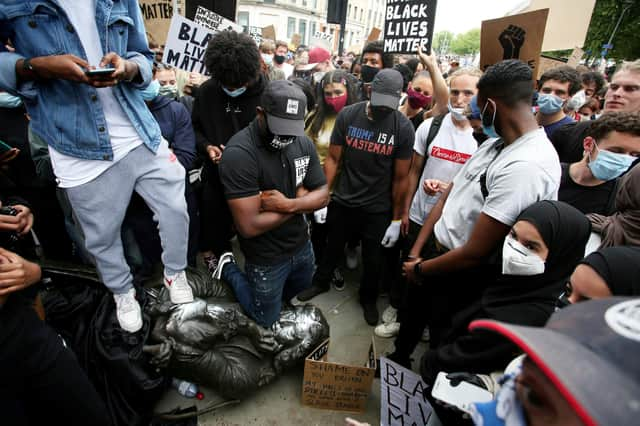Amazing tale of foul-mouthed sailor set free by love of God


In the afternoon, I watched the news as the demonstrations against racism, while largely peaceful, in some places erupted into violent protests including the ripping down of the statue of Edward Colston in Bristol, a man who made his fortune in the Slave Trade.
We all know this terrible trade is seen as a fundamental element of racism and therefore the focus of outrage and a response to the killing of George Floyd on May 25.
Advertisement
Hide AdAdvertisement
Hide AdThe question I was left wrestling with was ‘does violence help to solve an important issue that continues to blight us, or does it just add more fuel to the fire of hatred and division’.


I was then led back to John Newton, the writer of the hymn Amazing Grace.
He was a foul-mouthed man who served in the slave trade in the Navy.
After almost losing his life, he found faith in God – though he still continued in the slave trade.
Advertisement
Hide AdAdvertisement
Hide AdBut as the mercy, love and grace of God transformed his heart, he eventually became a staunch abolitionist and influenced people like William Wilberforce.
Eventually, the slave trade Bill was forced through parliament.
In one of Newton’s letters he apologised, saying ‘a confession, which ...comes too late ... It will always be a subject of humiliating reflection to me, that I was once an active instrument in a business at which my heart now shudders’.
What is striking to me is that his hymn, Amazing Grace, is a testimony of Newton’s heart being set free by the merciful love of God.
Advertisement
Hide AdAdvertisement
Hide AdIt was from a transformed heart and out of the power of love that brought him forgiveness.
His response was to campaign for the freedom of others, and in so doing played his part to declare that we are all equal in the eyes of our Creator.
The Reverend Jonathan Haigh is a minister at Victoria Hall Methodist Church, Sheffield city centre, and Greenhill Methodist Church – see greenhillmethodistchurch.com